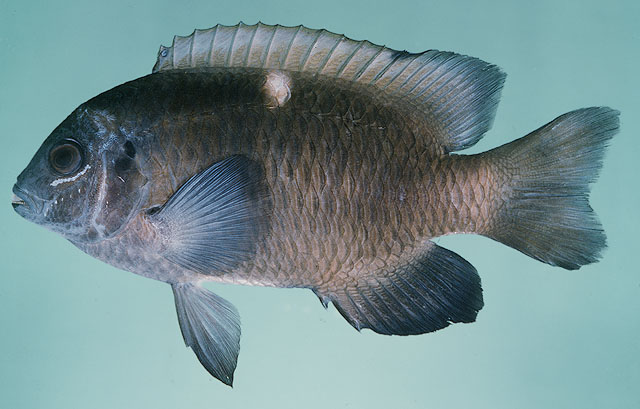| Pomacentridae (Damselfishes), subfamily: Pomacentrinae |
| 15 cm TL (male/unsexed) |
|
reef-associated; depth range 1 - 5 m, non-migratory |
| Western Central Pacific: Ashmore Reef, Indonesia, Singapore, Philippines, Palau, New Guinea, and Solomon Islands. |
|
Dorsal spines (total): 13-13; Dorsal soft rays (total): 14-15; Anal spines: 2-2; Anal soft rays: 13-14. Description: Adult body dark brown, head blue, forehead pale, middle back spot white large (Ref. 90102). White bar below front of dorsal fin when juveniles, reducing with growth and migrating to about centre of dorsal fin base (Ref. 48636). |
| Adults are found among coral outcrops and seagrass beds of silty areas of lagoon and coastal reefs (Ref. 9710), usually subtidal to a few meters depth (Ref. 48636). Oviparous, distinct pairing during breeding (Ref. 205). Eggs are demersal and adhere to the substrate (Ref. 205). Males guard and aerate the eggs (Ref. 205). |
|
Not Evaluated
(Ref. 96402)
|
| harmless |
|
Source and more info: www.fishbase.org. For personal, classroom, and other internal use only. Not for publication.
Page created by Jen, 05.08.02,
php script by kbanasihan 06/09/2010 ,
last modified by
dsantos, 20/08/10

